Nose Surgery in Paris
Search and Compare the Best Clinics and Doctors at the Lowest Prices for Nose Surgery in Paris

Find the best clinics for Nose Surgery in Paris
With Medijump you can browse 8 facilities offering Nose Surgery procedures in Paris. The cheapest price available is $4,084 in Paris. And for the cheapest price globally, prices start from $101 in Poland.
Nose Surgery in France
Price: $ 4,084
Nose Surgery in Paris
Price: $ 4,084
Poland offers the best prices Worldwide
Price: $ 101
From 103 verified reviews
Laura Morgana, 20 September 2020
Chirurgien très clair, gentil et professionnel. Il prends le temps de bien expliquer en détails. Opérée récemment, tout se déroulé même mieux que prévu. Recherche d'un résultat le plus naturel possible. Je conseille ce professionnel sans hésiter. P. S. Sa secrétaire est très à l'écoute et gentille.
From 56 verified reviews
AMINA BOUDJEMLINE, 17 September 2020
Excellent chirurgien mais pas que .... Dr Benjoar est à la fois disponible, à l'écoute et dans l’accompagnement de ses patients. Ma mère Lemaignen Micheline a subi une intervention suite à un cancer du sein Au delà de l'excellent résultat obtenu ... je garderai précieusement en mémoire, sa présence et son suivi post opératoire ... Malgré un planning chargé, le docteur a su lui proposer un RDV pour l’opérer rapidement dans le mois, avec une visite de contrôle avant ses congés. Il a pris le temps de la rappeler pendant ses congés pour prendre de ses nouvelles. A chaque fois, le docteur a su la mettre en confiance et la rassurer. Il lui a donné toutes les explications sur la réalisation de l’intervention et sur les suites opératoires et a répondu à toutes ses questions. Il est très bien coordonné avec les praticiens ( docteur Daniel Zarca une perle au passage) des autres disciplines à l’institut du sein, et établit une communication et un suivi réactifs avec eux. Le docteur est très professionnel, attentif à ses patient(e)s et expérimenté. Je le recommande donc vivement à toutes celles et ceux qui recherchent un excellent chirurgien ...et une écoute attentive et bienveillante
From 79 verified reviews
Melissa Mason, 23 September 2020
Très satisfaite par mon intervention ! Le résultat est top et encore mieux que ce que j'imaginais. Le Docteur montoneri m'a mis à l'aise dès le premier rendez-vous et a été aux petits soins du début à la fin du suivi postopératoire du mon lifting. L'accompagnement est irréprochable et appréciable.
From 20 verified reviews
Isabelle Hascoët, 23 September 2020
Excellent chirurgien plasticien. A opéré ma fille de 16 ans cet été pour une chirurgie réparatrice des seins (hypertrophie mammaire). Opération propre, aucun hématome, très belles cicatrices, un suivi post opératoire sérieux. Le résultat est très très satisfaisant. Mr Mitz est un véritable artiste, très sensible à la beauté du corps féminin, il saura vous conseiller. Je recommande vivement.
From 26 verified reviews
Agathe Virzi, 13 August 2020
In addition to being kind, smiling and attentive, Dr. Bergeret-Galley is an incredible surgeon who does his job to perfection. She was more than what I expected and I cannot thank her enough for what she did.
From 163 verified reviews
Mikaël Ponge, 22 September 2020
Invisalign treatment performed with Dr Cohen Samama and his team, I am fully satisfied with the result and even more. It was a big project that was not limited to aesthetics. The result is perfect! A big plus for availability; reception, and follow-up (even during the confinement period with video appointments). The treatment took longer than expected, no additional costs were asked of me, everything is taken care of from start to finish. A few more like bleaching have even been included. I highly recommend the clinic for its dental service. I am delighted with my experience.
From 161 verified reviews
latifa Rabhi, 06 September 2020
Very fast support, with highly qualified and human staff.The rooms are beautiful and very quiet.Calm and gentleness in this hospital, I highly recommend.
Centre Medical Et Esthetique Auber, located in Avenue Franklin Delano Roosevelt, Paris, France offers patients Nose Surgery procedures among its total of 23 available procedures, across 5 different specialties. Currently, there's no pricing information for Nose Surgery procedures at Centre Medical Et Esthetique Auber, as all prices are available on request only, whilst the national average price is approximately $4,240. All procedures and treatments are undertaken by just a small team of specialists, with 3 in total at the Hospital, and they are not accredited by any recognized accreditations institutes
Compare Before & After Photos of _procedure_photos.phpNose Surgery
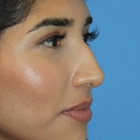
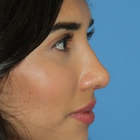
Full-side view
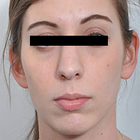
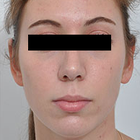
Front view
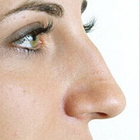
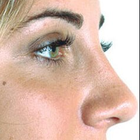
Full-side view
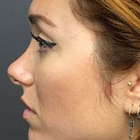
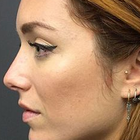
Full-side view
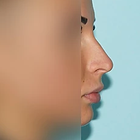
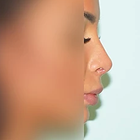
Full-side view
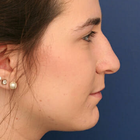
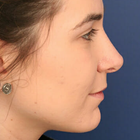
Full-side view
WHY US?
At Medijump, we're making medical easy. You can search, compare, discuss, and book your medical all in one place. We open the door to the best medical providers worldwide, saving you time and energy along the way, and it's all for FREE, no hidden fees, and no price markups guaranteed. So what are you waiting for?

Free

Best Price

Widest Selection

Risk-Free
What you need to know about Nose Surgery in Paris
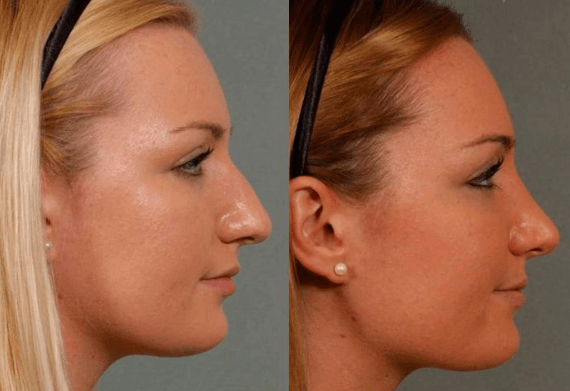
Commonly referred to as a Rhinoplasty, it is the medical term for reshaping of the nose or corrective surgery of the nose. It is one of the most common facial plastic surgeries (Facelift) procedures performed. Nose surgery can be performed to change the consequence of genetics, birth defect or nasal injury. It can be performed to enhance the appearance and/or to improve nasal breathing.
Surgery can be performed to correct nasal humps, the curvature of nose-bridge, nose tip irregularities, and asymmetry in the nostrils. The nasal appearance can be altered in various ways using intra-nasal chisels. Nose surgery procedures generally fall under three types: open rhinoplasty, closed rhinoplasty, and tip rhinoplasty. Rhinoplasty is normally performed under general anesthesia and will not leave any visible scars on the nose.
What does a Nose Surgery Procedure Involve?
Nose surgery is an individualized surgery. Before the surgery, you will need to discuss important factors with your surgeon to determine if it is suitable for you. Your surgeon will review your medical history, including your previous surgeries, medical conditions, and any medications you are taking. You will need to have a complete physical examination, such as blood tests. Your surgeon will also consider your other facial features, the skin on your nose, and what you would like to change or correct. Then, your surgeon will develop a customized plan for you. Two weeks before and after surgery, avoid any medications that contain aspirin or ibuprofen, such as Advil and Motrin IB because these medications can increase bleeding. You will need to also stop taking herbal remedies and over-the-counter supplements. If you are an active smoker, stop smoking because smoking can slow your healing process and increase the risk of getting an infection.
During the actual surgery, you will be given either local anesthesia or general anesthesia. The type of anesthesia depends on how complex the surgery is and what the surgeon would prefer to use. Then, the surgery will start by making incisions inside your nose or at the base of your nose between your nostrils. Your surgeon will reshape the inner bone and cartilage underneath your skin to make a more pleasing appearance.
There are several ways to change the shape of your nasal bones or cartilage, depending on your nose’s structure and how much needs to be removed or added. If only small changes are required, your surgeon may use cartilage taken from deeper inside your nose or your ear. However, for a much larger change, your surgeon may use cartilage from your rib, implants, or bone from other parts of your body. When the changes are finished, your surgeon will place the nose’s skin and tissue back. The incisions will be closed by stitches.
How Long Should I Stay in Paris for a Nose Surgery Procedure?
If everything goes well, you can go back to your hotel on the same day once the effects of anesthesia wear off. However, you will need to stay in a recovery room for a few hours so the staff can monitor you. Some people may need to stay in hospital overnight. After you are discharged from the hospital, you will need to stay in Paris for at least 10 to 14 days for initial recovery, follow-up checkups, and for the stitches to be removed.
What's the Recovery Time for Nose Surgery Procedures in Paris?
The recovery period for nose surgery can be different from person to person. In general, 2 to 3 weeks is needed until you can get back to your full normal routine and 3 to 6 weeks until you can do any strenuous activity. However, you should be able to go back to work within a week, except if your job requires strenuous physical activity. You will feel gradually better each day in the first week. You will experience swelling, which can take six months to subside. The only people who will notice the swelling is you and your surgeon. Your final nose shape will be apparent after it is completely healed.
What sort of Aftercare is Required for Nose Surgery Procedures in Paris?
After the surgery, you may need to wear a nasal splint for the first week. The splint is used to protect and support your nose. Your nose may be congested due to swelling or from the nasal splint. You need to rest in bed with your head raised higher than your chest to reduce bleeding and swelling. For a few days after the surgery, you may also experience slight bleeding and drainage of mucus. Your surgeon may place a “drip pad” under your nose to absorb drainage.
Your surgeon may ask you to avoid strenuous activity, take baths instead of showers, avoid blowing your nose, eat high-fiber foods to avoid constipation, not to do any facial expressions (smiling or laughing), not wearing pull clothing and wear button-downs instead.
For at least several weeks after the surgery, do not rest eyeglasses or sunglasses on your nose to prevent pressure. You should also wear SPF 30 sunscreen when you are outside because too much sun can cause permanent irregular discoloration to your nose. Do not put anything such as ice or cold packs on your nose even though it is swelling as the swelling will go away faster by limiting your dietary sodium.
What's the Success Rate of Nose Surgery Procedures in Paris?
Nose surgery is known to have around 80% to 90% success rate. Nevertheless, just like any other surgery, it still has possible risks and complications. These risks are bleeding, infection, numbness, permanent nerve damage, and an adverse reaction to the anesthesia. You should call your surgeon immediately if you suspect any of the symptoms. Other possible risks are difficulty breathing through your nose, uneven-looking nose, persisting pain, swelling, and discoloration, scarring, septal perforation, and the need for a second or third surgery.
For an in-depth analysis of the closed rhinoplasty procedure with before and after images, watch this short video.
Are there Alternatives to Nose Surgery Procedures in Paris?
If you do not want to undergo surgery, or if it is not suitable for you, you can get filler injections, such as Botox, Juvaderm, and Restylane. They can change the shape of your nose and only require a short visit to the doctor. This method is not painful and needs no incisions or stitches.
Whilst the information presented here has been accurately sourced and verified by a medical professional for its accuracy, it is still advised to consult with your doctor before pursuing a medical treatment at one of the listed medical providers
No Time?
Tell us what you're looking for and we'll reachout to the top clinics all at once
Enquire Now

Popular Procedures in Paris
Prices Start From $404

Prices Start From $111

Prices Start From $70

Prices Start From $220

Prices Start From $1,945

Prices Start From $192

Prices Start From $500

Recommended Medical Centers in Paris for Nose Surgery

- Interpreter services
- Translation service
- Religious facilities
- Medical records transfer
- Medical travel insurance
- Health insurance coordination
- TV in the room
- Safe in the room
- Phone in the room
- Private rooms for patients available

- Interpreter services
- Translation service
- Religious facilities
- Medical records transfer
- Medical travel insurance
- Health insurance coordination
- TV in the room
- Safe in the room
- Phone in the room
- Private rooms for patients available

- Interpreter services
- Translation service
- Religious facilities
- Medical records transfer
- Medical travel insurance
- Health insurance coordination
- TV in the room
- Safe in the room
- Phone in the room
- Private rooms for patients available

- Interpreter services
- Translation service
- Religious facilities
- Medical records transfer
- Medical travel insurance
- Health insurance coordination
- TV in the room
- Safe in the room
- Phone in the room
- Private rooms for patients available

- Interpreter services
- Translation service
- Religious facilities
- Medical records transfer
- Medical travel insurance
- Health insurance coordination
- TV in the room
- Safe in the room
- Phone in the room
- Private rooms for patients available

- Interpreter services
- Translation service
- Religious facilities
- Medical records transfer
- Medical travel insurance
- Health insurance coordination
- TV in the room
- Safe in the room
- Phone in the room
- Private rooms for patients available

- Interpreter services
- Translation service
- Religious facilities
- Medical records transfer
- Medical travel insurance
- Health insurance coordination
- TV in the room
- Safe in the room
- Phone in the room
- Private rooms for patients available

- Interpreter services
- Translation service
- Religious facilities
- Medical records transfer
- Medical travel insurance
- Health insurance coordination
- TV in the room
- Safe in the room
- Phone in the room
- Private rooms for patients available

- Interpreter services
- Translation service
- Religious facilities
- Medical records transfer
- Medical travel insurance
- Health insurance coordination
- TV in the room
- Safe in the room
- Phone in the room
- Private rooms for patients available

- Interpreter services
- Translation service
- Religious facilities
- Medical records transfer
- Medical travel insurance
- Health insurance coordination
- TV in the room
- Safe in the room
- Phone in the room
- Private rooms for patients available
Nose Surgery in and around Paris
About Paris
Paris is the capital and most populous city of France and it is the second-most visited country in the world and it is easy to see why. The city is considered as an international center of fashion, culture, art, and gastronomy. Its boulevards are lined with museums, world-famous monuments, classical bistros and boutiques, wine bars, and design shops that successfully captured the heart of its visitors. Besides a popular destination for leisure, Paris is also one of the leaders in Europe for medical tourism. Hospitals and clinics in the city are well-equipped and are able to perform all manner of medical treatments for international tourists. The doctors and nurses offer the highest level of care that is hard to rival.
Popular Parts of Paris
Paris is filled with iconic monuments with thousands of years of history. The most popular attraction of the city, as well as France’s symbol, is the Eiffel Tower. Visitors are allowed to climb as far as the 2nd floor via the south pillar’s 720 stairs or ride the elevator to the top. Besides the Eiffel Tower, visitors can stroll around the glamorous avenue des Champs-Élysées and admire Arc De Triomphe, admire the exquisite décor of Sainte-Chapelle, wander along the Seine, or try the city’s art nouveau cafes. Visiting Paris will never be complete without exploring its museums. One of the most popular is the Louvre, which is the biggest museum in the world with thousands of famous works, including the Mona Lisa.
Transport in Paris
Paris Charles de Gaulle Airport is the main international gateway to the city. It connects the city with almost every country around the world. Getting around Paris is easy as the city boasts one of the most efficient public transportation systems in the world. The metro subway system is extensive, generally safe, easy to use, and the trains usually arrive on time. The buses are spacious and affordable. There is also a commuter express (“RER”) train service that will take you to the city’s most important areas. Taxis are available and can be found easily.
Visas in Paris
France is a member of the Schengen Agreement, meaning citizens of 62 countries, including Singapore, the US, and Australia do not need a visa to enter and stay in the country for up to 90 days. Other nationals not listed in the visa-free entry should obtain and apply for a visa and always check at the nearest French embassy or consulate for the requirements.
Weather in Paris
Spring (March-May) has mild temperatures with a lot of rainy days. Summer starts in June bringing warm temperatures and sunny days. The average temperature during the summer is around 18°C. The temperature will slowly decrease in autumn (September – November), but the weather is still generally pleasant. Winter can be cold as the temperature drop to 4°C.
Additional Info
- Local Currency: The official currency is the euro. 1 EUR is approx. 1.12 USD.
- Money & Payments: ATMs are widely available. Debit and credit cards are accepted almost everywhere. Tipping can be mandatory in certain places.
- Local Language: French is the official language, but many people in tourist areas speak English.
- Local Culture and Religion: Paris has a diverse religion, with Christianity as the biggest. Other religions, such as Islam, Buddhism, and Judaism, are present.
- Public Holidays: Paris celebrates 11 official public holidays, including New Year’s Day, Easter Monday, Bastille Day, and Christmas Day.
Popular Searches
- Plastic Surgery in Thailand
- Dental Implants in Thailand
- Hair Transplant in Thailand
- Breast Augmentation Thailand
- Gastric Sleeve in Thailand
- Gender Reassignment Surgery in Thailand
- Laser Hair Removal in Bangkok
- Botox in Bangkok
- Dermatology in Bangkok
- Breast Augmentation in Bangkok
- Coolsculpting in Bangkok
- Veneers in Turkey
- Hair Transplant in Turkey
- Rhinoplasty in Turkey
- Stem Cell Therapy in Mexico
- Rhinoplasty in Mexico
- Liposuction in Mexico
- Coolsculpting in Tijuana
- Rhinoplasty in Korea
- Scar Removal in Korea
- Gastric Sleeve in Turkey
- Bone Marrow Transplant in India
- Invisalign in Malaysia
- Plastic Surgery in the Dominican Republic
- Tummy Tuck in the Dominican Republic
- Plastic and Cosmetic Surgery in Poland
- Rhinoplasty in Poland
- Hair Implant in Poland
- Dental Implants in Poland
- IVF in Turkey






